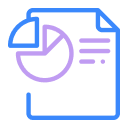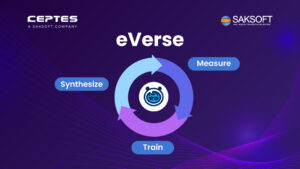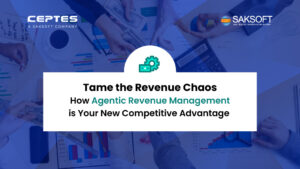In an era where environmental concerns are paramount, the convergence of digital transformation and sustainability is pivotal for future business strategies. Harnessing the power of digital technology, specifically Salesforce, can revolutionize how businesses approach sustainability. This blog post will explore innovative strategies and real-world examples of how companies are using Salesforce to reduce their environmental impact, optimize operations, and drive positive change.
The Intersection of Digital Technologies and Sustainable Development
Digital transformation and sustainability are no longer separate endeavors but interconnected strategies driving business innovation and environmental stewardship.
According to MIT Technology Review Insights, integrating sustainability into business strategies involves rigorous data collection and management, which digital technologies can significantly enhance. For instance, cloud computing, AI, and automation can streamline data management, enabling organizations to meet complex regulatory requirements and stakeholder expectations.
Digital transformation enables businesses to reimagine their operations through the lens of sustainability. It provides tools and methodologies to not only improve efficiency and reduce costs but also to minimize environmental impact and enhance social responsibility.
As digital technologies evolve, their potential to drive sustainable practices becomes more pronounced, fostering a business ecosystem that prioritizes long-term environmental health and economic resilience.
The Role of Salesforce in Accelerating Sustainable Business Practices
Salesforce, a leader in cloud-based solutions, offers tools that help businesses integrate sustainability into their core operations. By leveraging Salesforce’s robust data management capabilities, organizations can efficiently track and report on environmental, social, and governance (ESG) metrics, ensuring compliance with global standards like the International Sustainability Standards Board (ISSB) guidelines.
Salesforce’s Sustainability Cloud is a prime example of how digital platforms can drive sustainability. It provides a comprehensive suite of tools for tracking, analyzing, and reporting on sustainability metrics. This platform enables businesses to manage their carbon footprint, optimize resource usage, and ensure compliance with international standards. By providing real-time insights into sustainability data, Salesforce helps organizations make informed decisions that align with their sustainability goals.
Key Digital Technologies Driving Sustainable Development
1. Artificial Intelligence (AI):
AI can analyze vast amounts of data to optimize resource usage, predict maintenance needs, and reduce waste. For example, AI-driven insights can help companies optimize energy consumption in manufacturing processes. AI algorithms can identify patterns and anomalies in data, providing actionable insights that drive efficiency and reduce environmental impact. Furthermore, AI can support predictive maintenance, reducing downtime and extending the lifespan of equipment, which in turn minimizes waste and resource consumption.
2. Internet of Things (IoT):
IoT devices provide real-time monitoring and control over environmental parameters, contributing to reduced energy use and enhanced operational efficiency. By connecting various devices and systems, IoT enables businesses to gather and analyze data from across their operations. This data can be used to optimize processes, reduce energy consumption, and enhance sustainability. For instance, smart sensors can monitor energy usage in real-time, allowing businesses to identify inefficiencies and take corrective actions.
3. Blockchain:
Blockchain technology ensures transparency and traceability in supply chains, promoting ethical sourcing and reducing the risk of greenwashing. By providing an immutable record of transactions, blockchain can enhance transparency and accountability in supply chains. This is particularly important for ensuring that materials and products are sourced sustainably and ethically. Blockchain can also support the development of circular supply chains, where materials are reused and recycled, reducing waste and environmental impact.
4. Cloud Computing:
Cloud computing provides scalable and flexible solutions for managing sustainability data. By hosting data and applications in the cloud, businesses can reduce their reliance on physical infrastructure, thereby lowering their carbon footprint. Cloud-based platforms like Salesforce enable real-time data analysis and reporting, providing businesses with the tools they need to track and improve their sustainability performance.
5. Big Data Analytics:
Big data analytics allows businesses to process and analyze vast amounts of data to uncover insights that drive sustainability. By analyzing data from various sources, businesses can identify trends and patterns that inform their sustainability strategies. For instance, big data analytics can help businesses understand the environmental impact of their supply chains and identify opportunities for improvement.
6. Customer Relationship Management (CRM):
Salesforce’s CRM platform plays a crucial role in driving sustainable development. By leveraging CRM, businesses can manage and analyze customer interactions and data throughout the customer lifecycle. This helps companies improve customer service, drive sales growth, and maintain a strong customer relationship. Salesforce’s CRM tools enable businesses to understand customer needs and preferences, allowing them to offer sustainable products and services that align with consumer values. Additionally, CRM data can be used to engage customers in sustainability initiatives, fostering a culture of environmental responsibility.
Case Studies and Best Practices
The Indian telecom industry serves as a compelling case study demonstrating the impact of digital transformation on sustainability. Research indicates that digitalization in this sector has led to significant improvements in operational efficiency, customer engagement, and business model innovation, all contributing to enhanced sustainability outcomes.
In this context, the Indian telecom industry illustrates how digital transformation can drive sustainability across various dimensions. By leveraging digital technologies, telecom companies have been able to optimize their operations, reduce energy consumption, and enhance customer satisfaction. For example, by using IoT devices to monitor and manage energy usage, telecom companies have reduced their carbon footprint and improved operational efficiency. Additionally, digital platforms have enabled these companies to engage with customers more effectively, promoting sustainable practices and fostering a culture of environmental responsibility.
Another notable example is the adoption of digital technologies in the manufacturing sector. Companies like Siemens have leveraged AI and IoT to optimize their manufacturing processes, reducing energy consumption and minimizing waste. By integrating digital technologies into their operations, these companies have achieved significant improvements in efficiency and sustainability. For instance, AI-driven predictive maintenance has reduced downtime and extended the lifespan of equipment, while IoT-enabled monitoring has provided real-time insights into energy usage, enabling more effective energy management.
Challenges and Solutions
While digital transformation offers numerous benefits, organizations face challenges in integrating these technologies effectively. Key obstacles include data management complexities and the need for cross-functional collaboration. Solutions lie in adopting a unified technology platform and fostering a culture of accountability and continuous improvement.
One of the primary challenges is the integration of disparate data sources. As businesses adopt various digital technologies, they generate vast amounts of data that need to be managed and analyzed. Integrating these data sources into a unified platform can be complex, requiring robust data management and integration capabilities. Salesforce’s cloud-based solutions provide a comprehensive platform for managing and analyzing sustainability data, enabling businesses to overcome these challenges.
Another challenge is the need for cross-functional collaboration. Sustainability is a multi-faceted issue that requires collaboration across various functions and departments. For instance, achieving sustainability goals may require coordination between the IT, operations, supply chain, and finance departments. Fostering a culture of collaboration and accountability is crucial for integrating sustainability into the core operations of the business. Leadership plays a critical role in driving this cultural change, setting the tone for the organization and ensuring that sustainability is a top priority.
Additionally, businesses must navigate the evolving regulatory landscape. As governments around the world implement stricter regulations on sustainability and carbon emissions, businesses need to ensure compliance with these regulations. Digital technologies can support compliance by providing tools for tracking and reporting on sustainability metrics. For example, Salesforce’s Sustainability Cloud offers features for tracking carbon emissions and generating compliance reports, helping businesses stay ahead of regulatory requirements.
Future Outlook
To future-proof their ESG strategies, businesses must embrace continuous innovation and collaboration. Leveraging existing technology investments can provide a competitive edge while ensuring regulatory compliance. Organizations should aim to create circular ecosystems where resources are reused and regenerated, aligning with broader environmental goals.
The future of sustainability lies in the continuous integration of digital technologies into business operations. As technologies evolve, they will provide new opportunities for enhancing sustainability. For instance, advancements in AI and machine learning will enable more sophisticated data analysis and predictive capabilities, driving further improvements in efficiency and sustainability. Similarly, innovations in IoT and blockchain will enhance transparency and traceability in supply chains, supporting the development of circular economies.
Businesses should also focus on fostering a culture of sustainability. This involves not only implementing sustainable practices but also engaging employees, customers, and other stakeholders in the sustainability journey. By promoting a culture of environmental responsibility, businesses can drive meaningful change and build a strong foundation for long-term sustainability.
Collaboration will be key to achieving sustainability goals. Businesses should seek partnerships with other organizations, governments, and non-profits to drive collective action on sustainability. By working together, stakeholders can share knowledge, resources, and best practices, accelerating progress towards sustainability goals. For example, industry consortia and public-private partnerships can play a significant role in advancing sustainability initiatives and addressing common challenges.
Investment in research and development (R&D) is also critical for driving innovation in sustainability. Businesses should allocate resources to R&D to explore new technologies and solutions that can enhance sustainability. By investing in cutting-edge research, businesses can stay ahead of the curve and leverage the latest innovations to drive sustainability.
Conclusion
Digital transformation is no longer optional; it’s the cornerstone of sustainable business success. Salesforce, with its robust cloud platform, is at the epicenter of this shift, empowering organizations to integrate sustainability into their core operations. By leveraging AI, IoT, and blockchain, businesses can optimize resource consumption, minimize waste, and enhance transparency.
A key component of this transformation is seamless integration between Salesforce and external systems. No-code platforms accelerate this process, enabling organizations to connect disparate data sources without extensive coding. This unified view of operations provides invaluable insights to drive data-driven sustainability initiatives.
As businesses navigate the complexities of a changing world, Salesforce offers a powerful toolset to build a resilient, eco-friendly future. By embracing digital innovation and sustainable practices, organizations can not only contribute to a healthier planet but also gain a competitive advantage.
At CEPTES, we are dedicated to promoting sustainability through our Salesforce services by integrating eco-friendly practices and innovative solutions. We prioritize the development of energy-efficient applications such as digital document generation & eSignature and encourage the use of cloud-based platforms to reduce hardware dependency and energy consumption. Our team continuously explores ways to minimize our carbon footprint by optimizing data storage and processing, ensuring that our solutions are not only powerful but also environmentally responsible. By embedding sustainability into our core operations, CEPTES is committed to helping our clients achieve their business goals while also contributing to a greener planet.

Nilamani Das
Nilamani is a thought leader who champions the integration of AI, Data, CRM and Trust to craft impactful marketing strategies. He carries 25+ years of expertise in the technology industry with expertise in Go-to-Market Strategy, Marketing, Digital Transformation, Vision Development and Business Innovation.


















